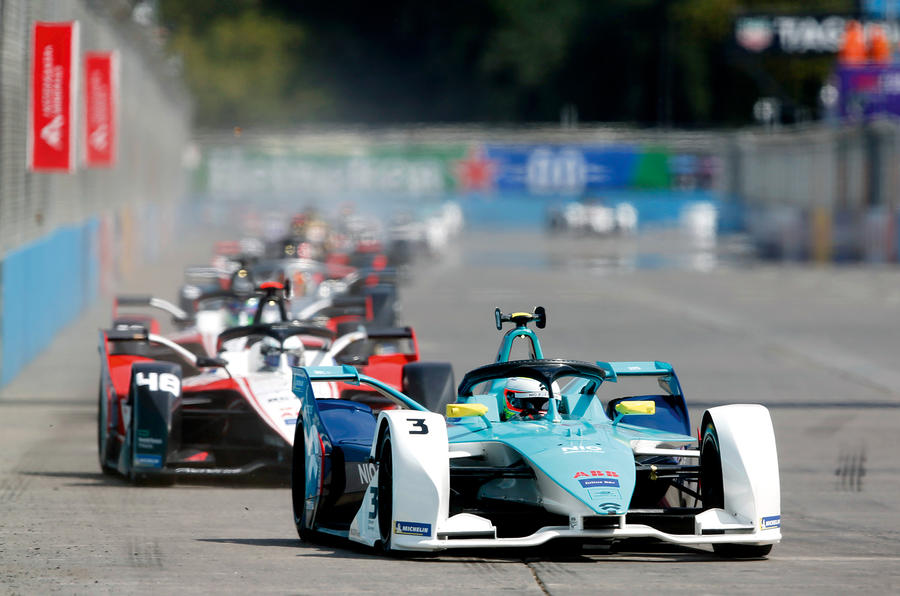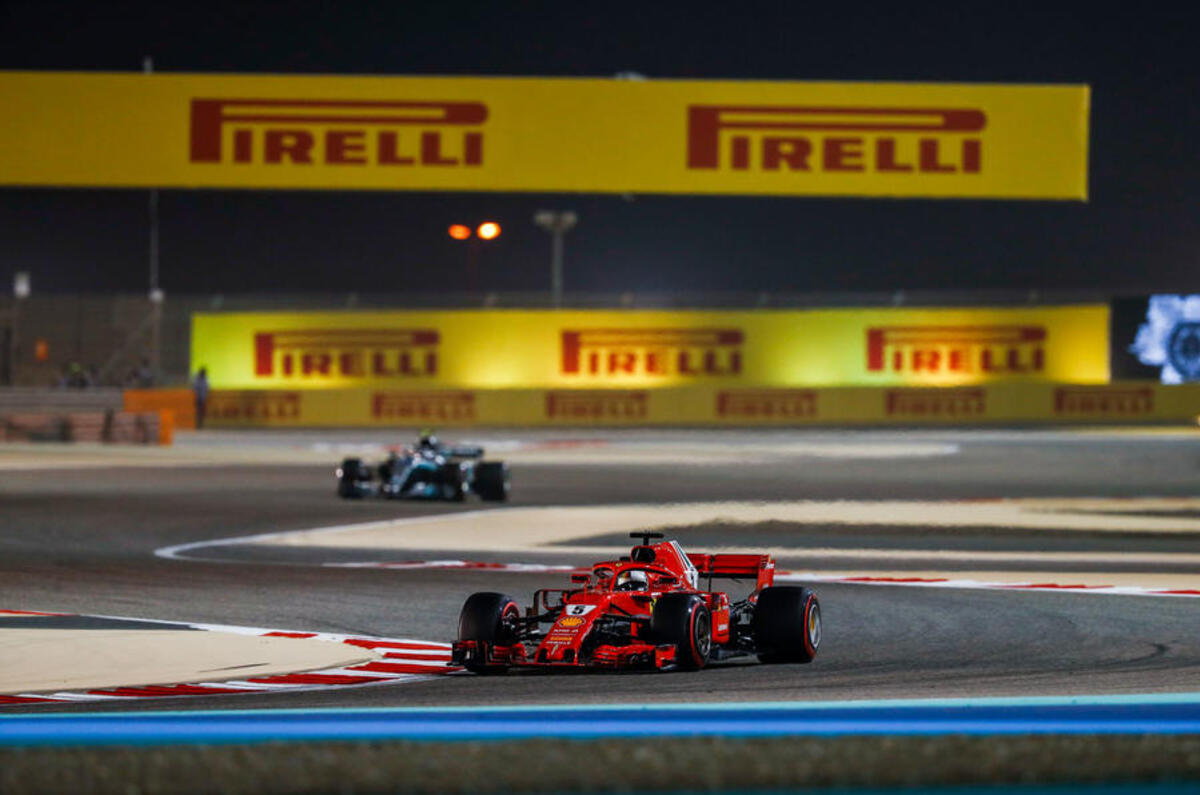Red rag to a raging bull alert: is the best hope of a bright future for Formula 1 a partnership with Formula E?
Right now, the two codes are light years apart in terms of speed and popularity. But the thought occurred to me, not for the first time, in the wake of the government’s new deadline for zero-emission motoring by 2035. If fossil-fuelled cars really are to be obsolete just 15 years from now, motorsport – and most of all F1 – is in a race against time.
So, will motorsport be wiped out? I don’t think so. It will adapt, as it always has. The grassroots can still thrive, with historic and club racing existing perhaps as archaic pastimes – like steam railways today. For the high-end sport, the penny has already dropped. Le Mans is active in alternative fuel research, including hydrogen; the World Rally and British Touring Car championships are pursuing hybrid futures; and this week a European electric touring car series has been launched (watch this space for more).
But F1? By far the best-known form of motorsport, it will always be in the direct line of fire. Its new sustainability targets are a start, and the current turbo hybrid powerplants are underrated things of wonder, but only a synthetic fuel revolution will thwart what is surely an inevitable move to full electrification.
Formula E is proof that that time is not yet here. The electric single-seater series, now in its sixth season, remains hugely divisive: its cars are too slow, even on its tight pop-up city street circuits. But it does have major clout: Germany’s ‘big four’ of Audi, BMW, Porsche and Mercedes have all bought in, as have Nissan-Renault, Jaguar and PSA. Like it or loathe it, the series is a pioneering beacon.
And as the old cliché goes, motor racing is like war: the perfect living lab in which to develop technology at speed. Over the course of this new decade, Formula E will get faster, fitter, better and stronger. What it lacks is the audience and deep heritage of F1, and that can’t be manufactured. But perhaps it can be bought, in the form of a coalition.
Agendas are at play – of course they are – and F1 has always gone its own way, even if it grudgingly accepted long ago that ‘relevancy’ is essential for its survival. But starting down the same road from scratch is illogical when Formula E is learning the hard lessons already. Joining forces makes sense – but that doesn’t mean it will happen.
READ MORE
How to fix Formula 1, according to Autocar
Formula 1 new cars 2020: Racing Point revealed
Formula E 2019-2020 season preview












Join the debate
Add your comment
As I've said
F1 came up with a lot of clever things that were useful however Ferrari and FIA banned most of them some after just 1 race, some of those things turbocharging for eg have proved to be quite relevent and of course making high, heavy and unaerodynamic with lots of unsprung and rotational masses vehicles are a lesson lost these days.
Ross Brawn's views are interesting
After reading an interview with Ross Brawn surrounding the government's ban, i wholeheartedly agree with him.
In short, he basically said that the government's approach was short sighted and technically flawed. What has happened is that politicians have gotten wholeheartedly behind the BEV movement, without fully understanding the implications surrounding it or considering viable alternatives.
Synthetic fuels and plug-in hybrids could be a massive boon for both environment and the population. For many people, they don't have access to the infrastructure necessary to make a BEV viable, and the government isn't exactly mobilising swiftly to fix that. Even though they have already announced plans to bring the date of the ban forward. With synthetic fuels, the infrastructure is already there and with F1 using more and more bio content in the mandated fuel mix, the oil companies would be forced to develop full synthetic or, at the very least, high proportion biofuels to compete. That coupled with the Hybrid technology could be the perfect combination for many many motorists.
The ban should be on fully organic fuels and then let the market and engineers decide on the replacement technology.
Not sure about biofuels (they
However, EVs do offer compelling advantages too and a battery breakthrough would be a game changer.
I disagree with all of this.
For example 'relevance'. Take a random year - 1975. In what way was Formula 1 'relevant" then? None that I can think of.
What other sport seeks relevance? Are football or tennis relevant?
This has only come about because F1 has allowed itself to become run, ruled and totally ruined by Mercedes.
And as for the hateful turbo hybrids being underrated...
eseaton wrote:
Totally agree, why does there need to be a relevance? That some tech filters down to road cars doesn't make it relevant as new tech is frequently pioneered outside of motorsports, but I don't agree that Mercedes has ruled and ruined F1, they appear to have less clout than Ferrari and are, in my opinion, a valuable asset to F1, as without them you only have two actual chassis and engine manufacturer teams of Renault and Ferrari.
But your point highlighting that other sports have no relevance is great and to my mind F1 should survive by being a spectacle, an event and sport worth watching, hopefully the new rules coming next year will improve the spectacle.